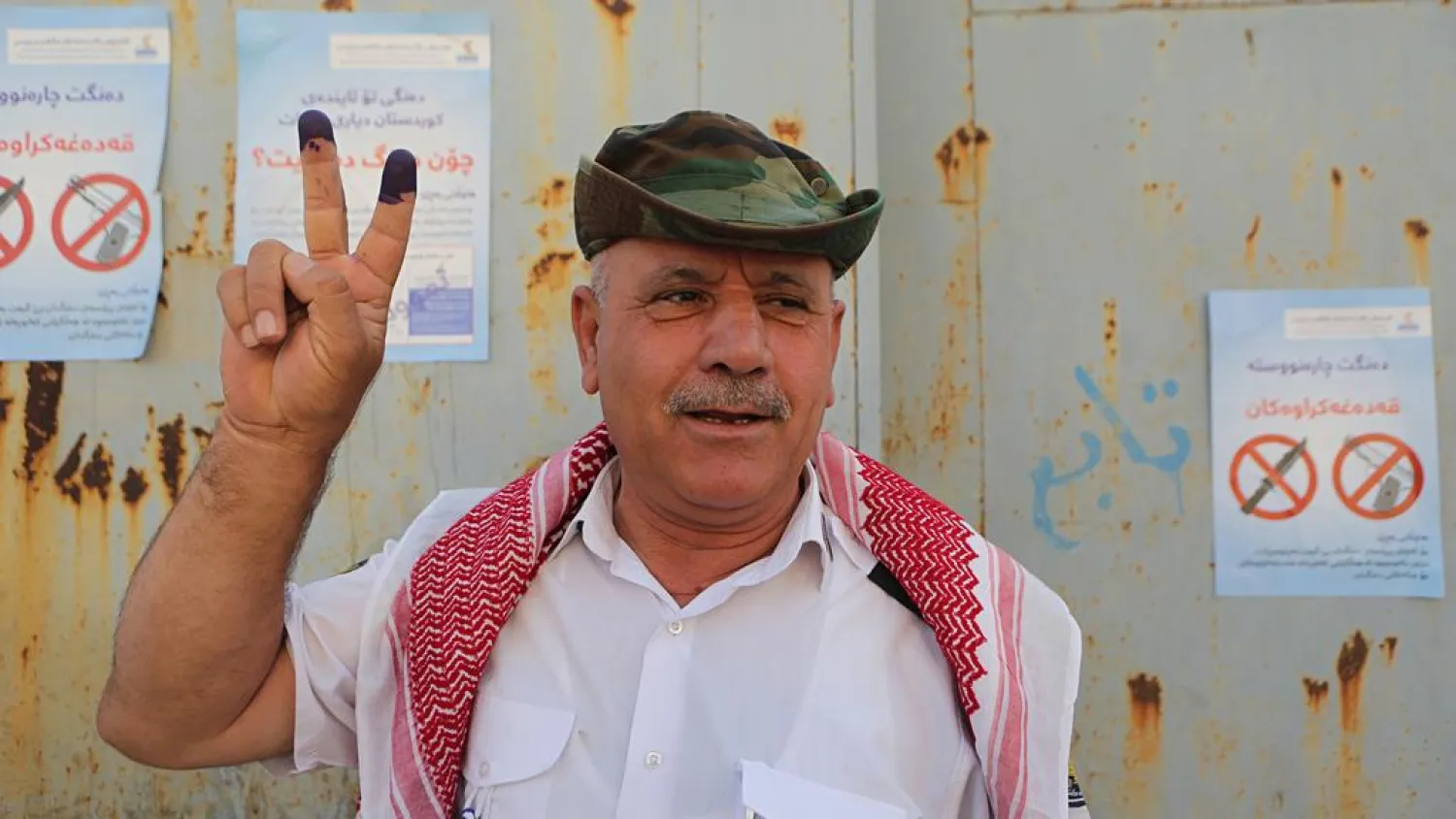Iraq and the region entered on Monday the post-Kurdistan referendum phase as the popular vote held in the three Iraqi Kurdistan provinces tuned into a fait accompli.
“The Kurdish political forces that were against the referendum or had some reservations on it finally changed their positions and have strongly participated in the vote,” independent regional sources told Asharq Al-Awsat on Monday.
They added that the high turnout might push worldwide powers, such as the US, to interfere in the next phase and work on holding talks between Erbil and Baghdad.
After the polling stations were close at 6 pm, the electoral commission announced that voters’ turnout has reached 78 percent out of 5.2 million eligible voters.
The referendum was held in the Kurdistan Region’s three provinces: Erbil, Sulaymaniyah and Duhok, and in the disputed territories, such as Kirkuk, Khanaqeen and the province of Diyala.
In Kirkuk, the voting day ended by the announcement of a curfew to prevent any disputes between supporters of the referendum and those against it.
Meanwhile, the referendum was held despite neighboring countries threatening to take escalatory measures against the move.
The Iraqi government on Monday voted on a resolution demanding that Prime Minister Haider al-Abadi to send troops to all territories that the Kurdistan Region has taken control of since 2003.
Soon after the parliament’s decision, the Iraqi Defense Ministry said it started a joint drill with the Turkish Army at the border.
Ankara also uncovered on Monday a list of expected sanctions against the Kurdistan Region for ignoring its previous warnings against holding the referendum.
The sanctions include closing the Habur border crossing and freezing exports and oil and gas purchases from the Kurdistan Region.
Also on Monday, Iran closed its borders with Iraqi Kurdistan before reopening it again later, asserting that it only closed its airspace on flights to and from the Kurdistan Region.
Meanwhile, Secretary-General Antonio Guterres expressed concern about the potentially destabilizing effects of the referendum while the White House said it hopes a unified Iraq will “annihilate” ISIS and push back on Iran.









